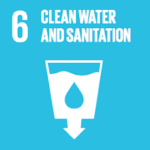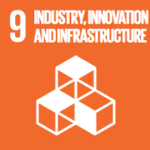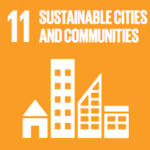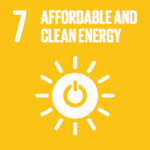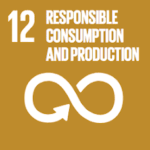As a leading provider of life-sustaining utility services, we strive to operate in a responsible manner and focus on impacts of our operations on the environment. Operating responsibly means making prudent and timely investments in infrastructure and working to mitigate environmental risks to ensure the sustainability of our business.
We are committed to high standards of excellence in the delivery of water and wastewater services, to taking measures to ensure climate resilience, to serving as a trusted resource to our customers and local governments, to building stronger communities and to providing a solid framework that drives economic stability, prosperity and quality of life. Our updated Environmental Policy frames the foundation of our commitment to environmental stewardship.
Investments in Infrastructure (2022 Progress)
- Middlesex Water’s wellfield tested above new health-based standards for an insidious threat used to make nonstick cookware known as PFAS (per- and polyfluoroalkyl substances) in late 2021. The Company promptly notified customers of the exceedance and was able to switch to alternate drinking water sources by November 2021. By June 2022, MWC began successfully treating groundwater for PFAS compounds with its Phase 1 construction of an advanced treatment facility at its Park Avenue wellfield which continues to effectively treat groundwater in compliance with all state and federal drinking water standards. Despite lingering challenges in the supply chain, the full treatment facility project remains on target for completion in June 2023. Proceedings continue in Middlesex Water’s lawsuit against the alleged polluter.
- Invested approximately $10 million to replace 22,500 linear feet of aging water main as well as 583 service lines, valves and 21 fire hydrant replacements.
- MWC has complied with all the amended requirements to the Water Quality Accountability Act. These include expanded cybersecurity requirements for utilities, new inspection schedules for valves and hydrants and the requirement of annual submission of capital improvement reports and associated capital expenditures to regulatory agencies.
 Lead service lines present the greatest threat of lead in drinking water. Based on the knowledge that replacing lead lines helps reduce exposure and protect public health as well as new Lead and Copper Rule revisions enacted by the USEPA, Middlesex has embarked on a utility-wide program to remove all lead and galvanized steel service lines on the customer and utility side by 2031. Middlesex had been proactive and replaced most of the known lead service lines on the utility-owned portion of the service line decades ago. Now, MWC is in the process of replacing known galvanized steel service lines on utility-owned and customer-owned portions of the service line.
Lead service lines present the greatest threat of lead in drinking water. Based on the knowledge that replacing lead lines helps reduce exposure and protect public health as well as new Lead and Copper Rule revisions enacted by the USEPA, Middlesex has embarked on a utility-wide program to remove all lead and galvanized steel service lines on the customer and utility side by 2031. Middlesex had been proactive and replaced most of the known lead service lines on the utility-owned portion of the service line decades ago. Now, MWC is in the process of replacing known galvanized steel service lines on utility-owned and customer-owned portions of the service line.- The Company will be working on a neighborhood-by-neighborhood basis to replace lead service lines, factoring in planned construction activities and prioritizing geographic areas based on the most vulnerable areas that serve a large number of at-risk individuals. A publicly available inventory map of service lines whose lead status is known or unknown can now be found on our website and online tools are available where customers can view and self-report service line composition.
- Upholding the Company’s continued commitment to water quality and sustainability, and the need to invest in technologies that keep pace with changing regulations and emerging contaminants, MWC began the operation of its ozone plant upgrade. This $72 million facility was dedicated in 2022 to VP of Engineering, G. Christian Andreasen, who, over a 40-year career, has substantially led the company’s extensive capital investment program and other engineering initiatives.
Minimizing Our Carbon Footprint (2022 Progress)
- Middlesex replaced aging generators at its raw water intake station with new Tier 4 Emissions compliant models which not only increase reliability during emergencies but also reduce overall emissions.
- The Company executed a recent upgrade to its Oracle Mobile Workforce Management application which, while minimizing greenhouse gas emissions by reducing travel time and vehicle usage, also results in more efficient fleet dispatching as it optimizes driving routes to help crews better respond to customer service requests.
- Increased utilization of video conferencing and other meeting platform applications is helping to reduce employee travel.
- The Company’s hybrid work model contributes to work/life balance for employees whose jobs allow them to work remotely. A further benefit of this model is that it helps to further reduce emissions as well as non-recyclable waste.
- Work has begun on the design and construction of four dual charging stations for conversion to electric vehicles.
- Upgrades to our operating facilities include conversion away from fuel oil for heating, additional variable frequency drives on large pumps, and energy-efficient lighting, etc.
- Sustainable landscaping, including native plants, has been incorporated at our CJO Treatment Plant.
- We continue to encourage our customers to be environmentally conscious through e-billing and viewing paperless statements which reduce cost, waste, and emissions.
Maintaining and Protecting Resources/Climate Resiliency (2022 Progress)
- Throughout 2022, as high temperatures and lingering dry conditions placed pressures on water systems, Middlesex continued to practice environmental stewardship of water resources by diligently managing unaccounted for water through leak detection measures and increasing conservation messaging to customers.
- Middlesex participates in a load-shedding program with the electrical power grid by switching over to generator power during times of peak electrical demand.
- As part of our Water for Tomorrow program to ensure service quality, reliability and resiliency our teams continued to research suitable locations to construct new elevated water storage tanks in the Middlesex system area.
- We have increased efforts to work with local law enforcement to identify and prosecute individuals who have gained water in an unauthorized manner.
- Conducted a total review of our enterprise GIS system to identify enhancements. Upgrading our GIS technology will help us further integrate GIS into our enterprise-wide Asset Management program and further assist in supporting Company response to main breaks or other operational emergencies.
- Having completed our Western Transmission main several years ago which helps provide critical back-up water supply, we began planning for an overall condition assessment of another critical transmission pipeline.This work will help us plan for overall transmission system resiliency.
- To adapt to climate change vulnerabilities (rising average temperatures and greater storm intensity) and maintain resiliency, the Middlesex team works to identify and remediate operational risk concerns. In 2022, for example, as part of hurricane/storm preparedness activities, crews cleared, cut and removed very large tree hazards and vegetative overgrowth which could pose a threat to critical water storage facilities. Also, we elevated our new generator above the floodplain in the area and added new electrical upgrades including new switch gears to maintain resiliency.
- The Middlesex Enterprise has Emergency Response and Business Continuity plans in place to prepare for a water quality emergency. Middlesex participated in a New Jersey Board of Public Utilities Tabletop Exercise, designed to test emergency procedures, decision-making processes and customer communications in a real-time simulated realistic scenario.
- To help ensure a safe, reliable water supply to rapidly expanding communities in DE, our subsidiary Tidewater constructed elevated storage tanks in the Millville by the Sea and South Rehoboth districts in southern DE. The elevated storage tanks, standing over 150 feet tall with a capacity of one million gallons, will help address water use fluctuations and improve pressures throughout the system.
- To further maximize system efficiencies and stabilize water supply for area residents in southern Delaware, we interconnected two large water systems – the Rehoboth District and the Angola District in Sussex County, DE, whose combined systems serve nearly 20,000 service connections with over 1,100 new connections added in the past year. Also, a new plant was designed/built in the community of Bayside Americana and placed into service in the second quarter of 2022 to serve that growing community.



